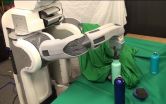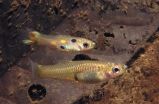Best and safest blood pressure treatments in kidney and diabetes patients compiled
2015-05-22
(Press-News.org) The first definitive summary of the best and safest blood pressure lowering treatments for kidney disease and diabetes patients has been compiled by New Zealand doctor and researcher Associate Professor Suetonia Palmer.
The international relevance of her work for doctors, patients and those who decide which drugs to fund has been demonstrated by the prestigious Lancet medical journal publishing an article on her study in its latest edition.
The University of Otago, Christchurch, researcher together with a global team used innovative statistical analysis to compare hundreds of research studies on the effectiveness of blood-pressure-lowering drugs for patients with kidney disease and diabetes. The result: a one-stop-shop, evidence-based guide on which drugs are safe and effective.
Diabetes and high blood pressure are the most common causes of kidney disease around the world, and people often have both. Chronic kidney disease caused by diabetes always affects both kidneys and generally gets worse over time, often leading to kidney failure requiring dialysis treatment or a kidney transplant.
Associate Professor Palmer says this study is important because diabetes and kidney disease are at epidemic proportions in New Zealand. A common treatment for those with diabetes and kidney disease is blood-pressure-lowering drugs. The aim of these drugs is to prevent kidney damage.
However, doctors and patients face a bewildering array of treatment options as there are many drugs available to lower blood pressure, many used in combination. There are also hundreds of research studies done on the effectiveness of drugs or combinations of drugs. It is not possible for people to identify the best available treatments without scientific advances such as this study.
Associate Professor Palmer works as a nephrologist, or kidney specialist, at the Canterbury District Health Board and commonly sees first-hand how confusing the wide range of treatment options can be for patients, and those who treat them.
Her paper is the first to compare all drug options, and combinations of commonly used drugs, against each other.
Associate Professor Palmer says it is thrilling to have her work recognised by one of the world's leading medical journals.
"It shows that we are producing research of international value at the University of Otago in Christchurch in collaboration with strong global partnerships."
INFORMATION:
The research published in the Lancet journal was funded by the Canterbury Medical Research Foundation.
Associate Professor Palmer also receives funding from the Royal Society as a Rutherford Discovery Fellow and the Health Research Council of New Zealand.
The research was done in collaboration with researchers at the Universities of Sydney, Ioannina, Copernicus, Calgary, Bari, Alberta, and Novara, and University College London. The Australian authors are Professor Jonathan Craig and Giovanni Strippoli, affiliated with the Sydney School of Public Health.
ELSE PRESS RELEASES FROM THIS DATE:
2015-05-22
Berkeley -- Researchers at the University of California, Berkeley, have developed algorithms that enable robots to learn motor tasks through trial and error using a process that more closely approximates the way humans learn, marking a major milestone in the field of artificial intelligence.
They demonstrated their technique, a type of reinforcement learning, by having a robot complete various tasks -- putting a clothes hanger on a rack, assembling a toy plane, screwing a cap on a water bottle, and more -- without pre-programmed details about its surroundings.
"What ...
2015-05-22
WASHINGTON, D.C., May 22, 2015 -- Play a flute in Carnegie Hall, and the tone will resonate and fill the space. Play that same flute in the Grand Canyon, and the sound waves will crash against the rock walls, folding back in on each other in sonic chaos. The disparity in acoustics is clear - to the modern listener, the instrument belongs in an auditorium.
"Distinct echoes would be totally unforgivable in today's performance spaces," says Steven J. Waller, an archaeo-acoustician who has studied prehistoric rock art and the acoustics of ancient performance spaces. "But, ...
2015-05-22
WASHINGTON, D.C., May 22, 2015 -- The room is loud with chatter. Glasses clink. Soft music, perhaps light jazz or strings, fills the air. Amidst all of these background sounds, it can be difficult to understand what an adjacent person is saying. A depressed individual, brought to this cocktail party by a well-meaning friend, can slide further into himself, his inability to hear and communicate compounding his sense of isolation.
"A lot of research has suggested that these people with elevated depression symptoms have a bias towards negative perception of information ...
2015-05-22
Why do good people do bad things? It's a question that has been pondered for centuries, and new research published by the Society for Personality and Social Psychology may offer some insights about when people succumb to versus resist ethical temptations.
"People often think that bad people do bad things and good people do good things, and that unethical behavior just comes down to character," says lead research author Oliver Sheldon, PhD. "But most people behave dishonestly sometimes, and frequently, this may have more to do with the situation and how people ...
2015-05-22
Parasitic worms can pose a serious threat to the Dungeness crab, a commercially important fishery species found along the west coast of North America. The worms are thought to have caused or contributed to the crash of the crab fishery of central California during the last half century. New research shows that infected crabs can rid themselves of parasites by moving into the less salty water of estuaries. Low salinity kills the worms creating a parasite refuge for the crabs.
The large Dungeness crab (Metacarcinus magister) is an important source of income for fishermen ...
2015-05-22
Ecologists from the University of York, together with the Wildlife Conservation Society (WCS) and the Uganda Wildlife Authority (UWA), have developed a new method to better identify where poachers operate in protected areas.
Published in Conservation Biology, the analysis provides spatial maps of illegal activities within Queen Elizabeth National Park, one of Uganda's most important protected areas for elephant conservation.
Analysing 12 years of ranger-collected data, different types of threats were monitored and recorded, including the commercial hunting of large ...
2015-05-22
The German Institute for Quality and Efficiency in Health Care (IQWiG) has assessed documents subsequently submitted by the drug manufacturer in the commenting procedure on the dossier assessment of the fixed-dose drug combination of ledipasvir and sofosbuvir (trade name: Harvoni). According to the findings, a hint of a non-quantifiable added benefit for a further patient group can be derived from this additional information.
This patient group consists of treatment-naive or pretreated patients with hepatitis C virus (HCV) infection of genotype 1 who are also infected ...
2015-05-22
A larger brain brings better cognitive performance. And so it seems only logical that a larger brain would offer a higher survival potential. In the course of evolution, large brains should therefore win out over smaller ones. Previous tests of this hypothesis had relied on comparison studies looking at the intelligence and survival potential of species with large brains versus species with smaller brains. And species with larger brains do appear to have an advantage. But such studies are unable to show a causal relationship.
Alexander Kotrschal, Sarah Zala, Séverine ...
2015-05-22
Increasing public knowledge and understanding about energy issues is vital if improved energy-saving behaviours are to be encouraged among individuals and organisations, a study suggests.
A survey conducted at Plymouth University indicated widespread misconceptions about energy which researchers said may be reducing the effectiveness of energy-saving behaviours.
It also showed varying levels of motivation and engagement with energy issues, with respondents saying they were uncertain about their capacity to influence business and government on matters of environmental ...
2015-05-22
An association between resting heart rate and diabetes suggests that heart rate measures could identify individuals with a higher future risk of diabetes, according to an international team of researchers.
In a four-year study of 73,357 Chinese adults, researchers observed that faster heart rates were positively associated with an increased risk of developing diabetes. Researchers also found that faster heart rates were associated with impaired fasting glucose levels and a conversion from impaired fasting glucose levels to diabetes among the same population.
"In this ...
LAST 30 PRESS RELEASES:
[Press-News.org] Best and safest blood pressure treatments in kidney and diabetes patients compiled

